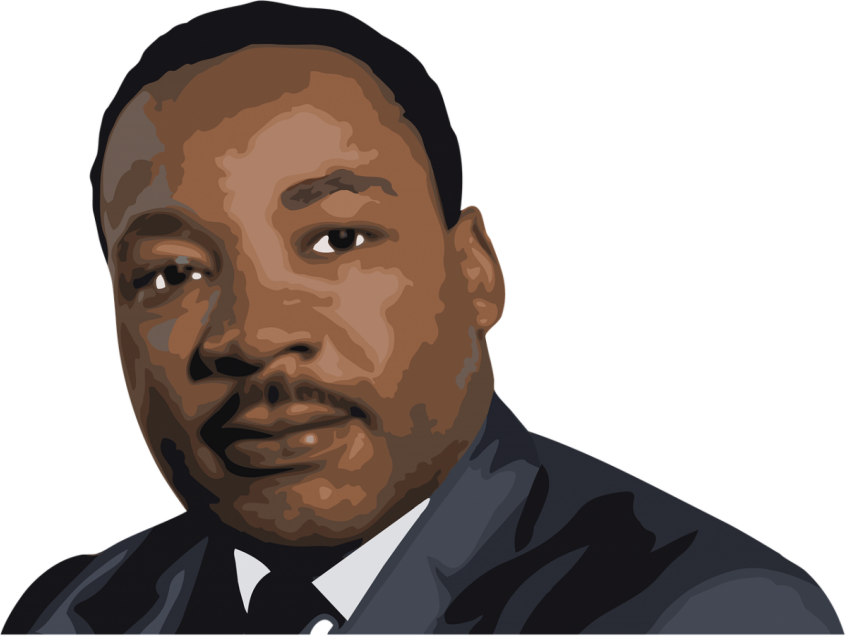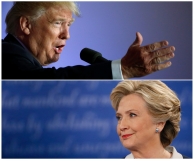
As an English boy, born and bred, it was a privilege to spend Martin Luther King Day in the company of some American clergy. A group of Lutheran and Episcopal clergy were visiting London on a study tour and alongside sharing some stories of church life with them, the conversations inevitably turned to politics, language and culture in our two nations.
It was a fascinating time to be having these conversations. In an extraordinary act of chutzpah, the FBI tweeted MLK day salutations. The Bureau's official feed said, "Today, the FBI honors the Rev. Martin L. King Jr. and his incredible career fighting for civil rights."
Many Twitter users were quick to remind the FBI that it hadn't always honoured Dr King. Far from it, in fact. As the New York Times reported, King "informed friends that someone wanted him to kill himself... King was certain the letter had come from the F.B.I."
"A little more than a decade later," it goes on, "the Senate's Church Committee on intelligence overreach confirmed King's suspicion."
A country so blinded by racial hatred that an official government agency could blackmail a leading Christian minister to kill himself should chill us to the bone.
It wasn't just the FBI, though. King felt let down by many white Church leaders. While some were overtly hostile, others said they were supportive of his civil rights campaigns, but said his methods were too extreme. King addressed these leaders in his famous Letter From Birmingham Jail. One of the defining documents of the 20<sup>th Century, the Letter brims with righteous anger at the injustice being visited on African American Christians by their white sisters and brothers. It is essential, uncomfortable reading for all privileged Christians.
King responded quoting St Augustine, Paul Tillich, Abraham Lincoln and Jesus himself. He excoriated the white church for its cowardice. "In deep disappointment I have wept over the laxity of the church. But be assured that my tears have been tears of love," he wrote. "I see the church as the body of Christ. But, oh! How we have blemished and scarred that body through social neglect and through fear of being nonconformists."
There were eerie echoes of the opposition to King this week. Donald Trump, elected with the votes of 81 per cent of white evangelicals, took to Twitter to denounce one of Dr King's closest allies. Rep John Lewis (D, Georgia) was the subject of a Twitter rant from Trump. After saying he didn't think Trump was 'legitimate' the President-elect tweeted Lewis should, "spend more time on fixing and helping his district, which is in horrible shape and falling apart (not to......mention crime infested) rather than falsely complaining about the election results. All talk, talk, talk — no action or results. Sad!"
Trump's crass dismissal of a civil rights hero on the weekend the country was remembering Dr King was, even by his standards, astonishing. Yet it pointed to an important principle – sometimes doing the right thing will be deeply unpopular.
In both the case of King and Lewis, prophetic voices were shouted down by those in positions of privilege and power. But those powerful people missed the point – they were criticising true American heroes.
Martin Luther King followed Jesus' teaching. He gave his life for others, so that the scourge of Jim Crow and the catastrophic inheritance of slavery moved a step closer to being overcome. Sadly, there is still much work to be done on that front, but the legacy of King and Lewis' work remains an inspiration.
What they show us is that Christians' ultimate allegiance is never to their country – it is to God and their fellow human beings. Sometimes, that will mean that we must speak out and act for justice regardless of the criticism from those in power. In fact, that will make us better patriots – those who strive for justice and mercy for all in their country.
Dr King showed how prophetic justice-seeking is the act of a person who cares about their country. Someone who cares so much that they will give up their life to see the Kingdom of God progress even against unimaginable opposition. In the words of the prophet Amos, famously quoted by King in the Letter From Birmingham Jail, "Let justice roll down like waters and righteousness like an ever flowing stream."
Follow Andy Walton on Twitter @waltonandy















